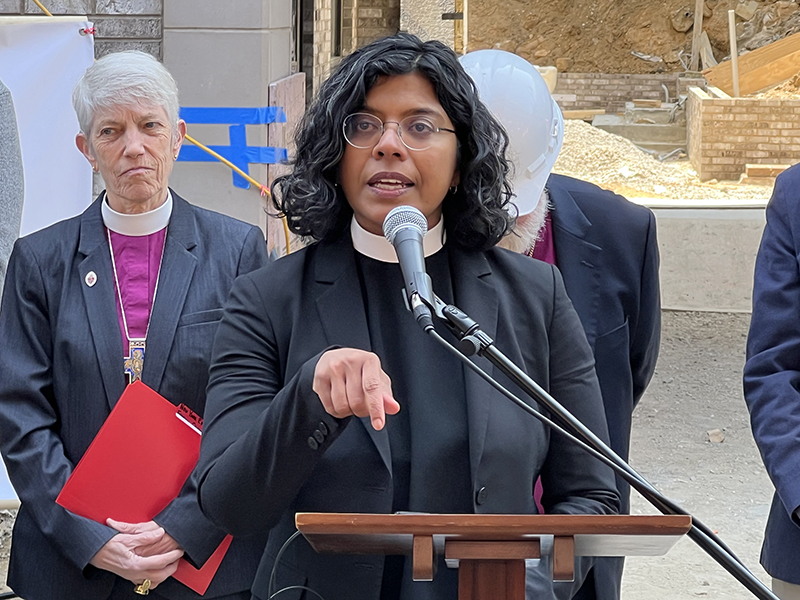NEW YORK (RNS) — Nine years ago, when New York’s Episcopal bishop, the Rt. Rev. Andrew Dietsche, invited the Rev. Winnie Varghese to chair the diocese’s social concerns committee, she agreed — on the condition that she could found a credit union.
Varghese had attended seminary in the Diocese of Los Angeles when leaders there established a credit union after civil unrest and market crashes in the 1990s had contributed to economic hardship in the city. She saw how credit unions, which are non-profits owned and indirectly governed by those who bank with them, offer higher savings rates, lower interest on loans and easier access to credit.
A decade earlier, in 2003 and 2004, church leaders had discussed the idea but ultimately decided it wasn’t feasible. The diocese instead continued offering short-term loans to people in the community.
RELATED: 5 Mistakes Pastors Make with Church Finances
“That was really useful in our migrant communities and in poor communities,” Varghese told Religion News Service. “But you can imagine the limitations of that. You’re trying to get money together in this pool, and then, you know, none of us wants to have to enforce loan management from a committee in a church towards vulnerable people.”
Varghese, who also became director of community outreach at Trinity Church Wall Street, the historic church in Manhattan’s financial district, revived the credit union idea, enlisting her parish and the diocese in the cause.
Last November, the Episcopal Federal Credit Union received its federal charter, with initial capital of half a million dollars, half of it contributed by the diocese and half from Trinity Wall Street. The first accounts were opened Thursday (May 18) at a ceremony and press conference held at St. James Terrace, a new affordable-housing complex set to open this summer next to St. James Episcopal Church in the Bronx.
“The credit union will organize our resources to recognize God’s abundance, to share it with our communities and make a difference in the world,” said the Rev. Matthew Heyd. Heyd, who will be consecrated a bishop on Saturday and succeed Dietsch next year, worked closely with Varghese to develop the credit union and has made “economic justice” a focus of his leadership.

The Rev. Winnie Varghese speaks during a press conference at St. James Terrace, Thursday, May 18, 2023, in the Bronx, New York. Photo by Meagan Saliashvili
Sam Brownell, the founder of CUCollaborate, a consultancy that aims to help credit unions “beat banks,” said credit unions help “ensure its customers, or in their case, member owners, are not only treated fairly but actually receive below-market pricing.”
Brownell grew up attending Trinity Church Boston, a landmark Episcopal church on the city’s Copley Square.
“Part of Jesus’ teachings that resonated the most with me was the imperative to care for vulnerable and marginalized individuals,” he said. “Credit unions do this every day.”
RELATED: Four Key Safeguards to Make Sure Your Church Finances Stand Up Under Scrutiny
About 7 million U.S. households do not have a bank account, according to the most recent federal data. In New York City, 11.2% of households have no bank account, according to city government data from 2017. The highest concentration of unbanked people lives in the Bronx, and most of those are low-income and minorities. Another 21.8% have a bank account but use alternative financial products for some banking needs, which tend to incur higher fees.

